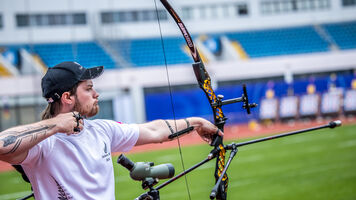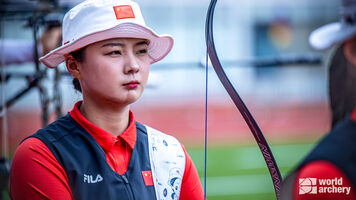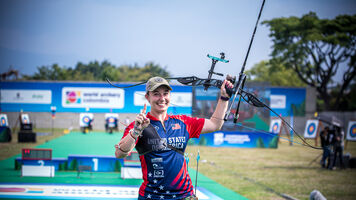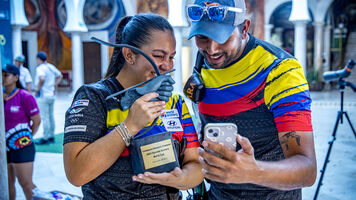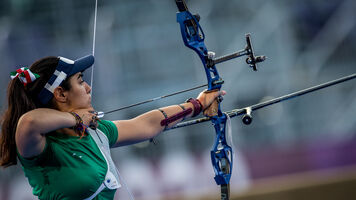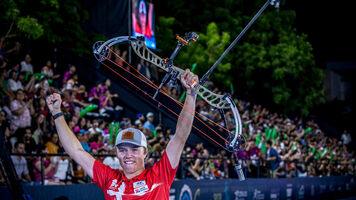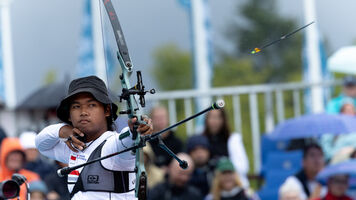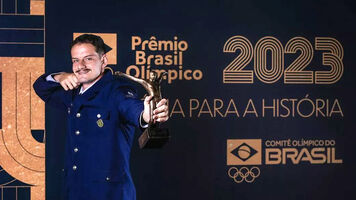Chinese Taipei – Korea’s biggest threat at the Asian Games?
New world record holder Kang Chae Young was asked, in Antalya, who Korea’s biggest threat for a medal at the Asian Games in Jakarta this summer would be.
“I think Taipei,” she responded. “Because Taipei has good scores. They’re strong.”
Chinese Taipei have emerged in the past three years as a powerhouse of Asian archery, taking international medals on the Hyundai Archery World Cup circuit in both compound and recurve competition with both men and women.
At the World Archery Championships in Mexico City in 2017, recurve man Wei Chun-Heng came excruciatingly close to a world title.
While Chinese Taipei has long had an elite archery programme – in 2004 at the Olympic Games in Athens, Taipei’s men won silver and women took bronze – the sustained success the squad has attained over the last few years has almost eclipsed larger, and often better-funded, Asian neighbours.
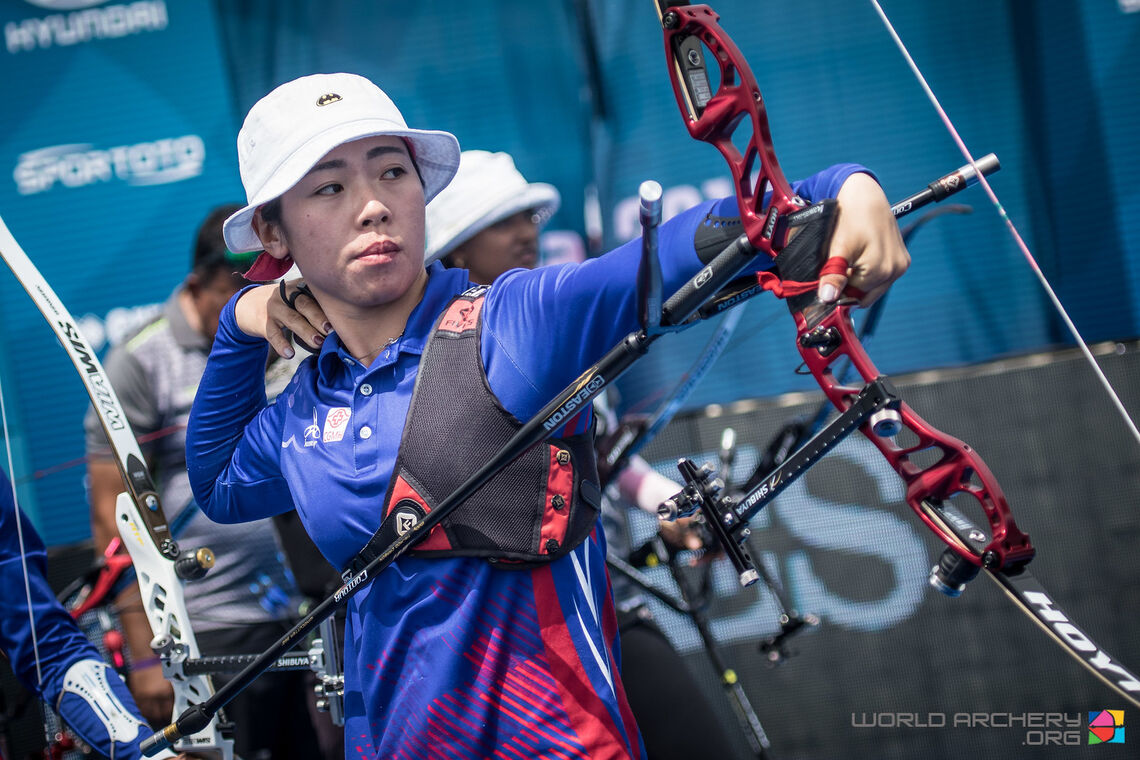
The jewel in Taipei’s crown is the recurve women’s team.
It’s a squad that’s changed little over the past five years, although Peng Chia-Mao appears to have replaced 2015 world silver medallist Lin Shih-Chia in the starting line-up, and is made up of student athletes.
(That is, after all, how elite sport works in Chinese Taipei – while studying, athletes can shoot, but at around the age of 28 they must progress to working life.)
At the Universiade on Korean turf in Gwangju in 2015, the women beat a full-strength Korean side in the gold medal match – to stunned silence from the home crowd. (Korea got a measure of revenge at the 2017 edition in Taipei City, when Kang Chae Young also beat Tan Ya-Ting to individual gold, to an arena that might have gone even quieter.)
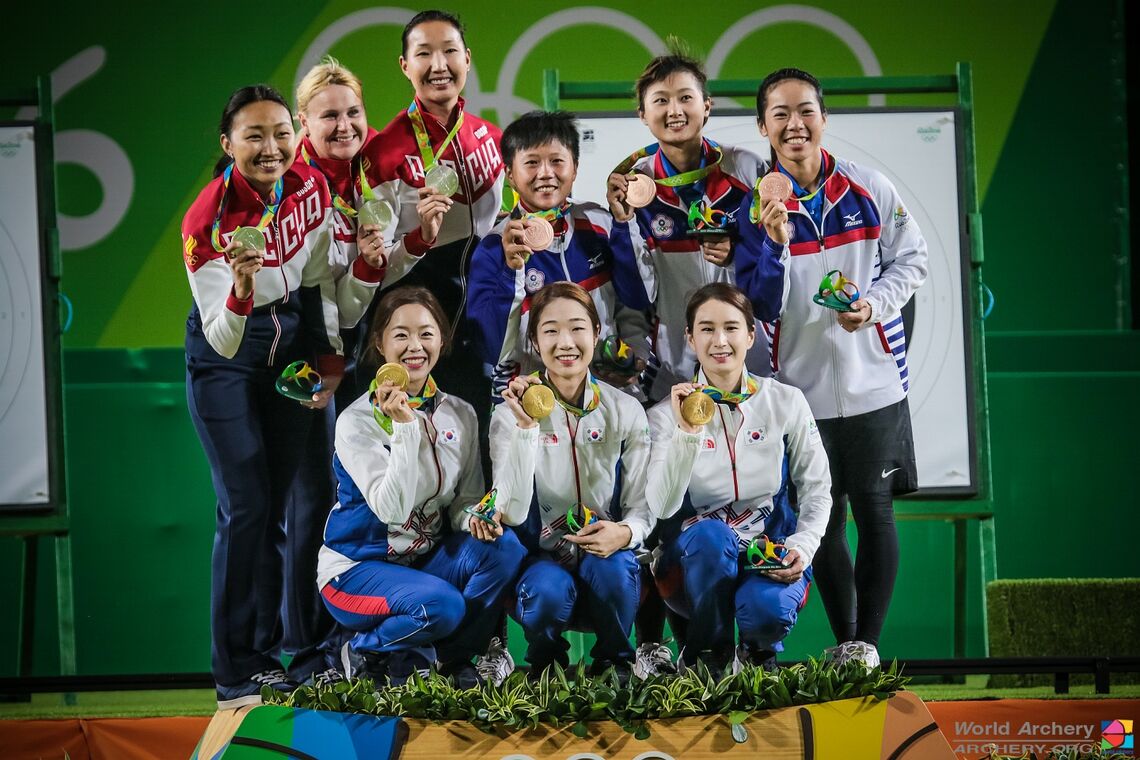
In 2016, a shaky performance from team leader Lei Chien-Ying in Rio meant that the team qualified fourth, putting them against Korea in the semifinals. They lost, but recovered to beat Italy for a deserved bronze, taking the first medal of those Olympics for Chinese Taipei.
Indeed, almost all of the recent high-profile contests between Korea and Chinese Taipei’s women have come off with Taipei losing, often narrowly, to the dominant archery nation.
It must be tough having the largest silver medal collection on the field.
Tan Ya-Ting, in particular, might be the most talented archer of her generation not to be in possession of a major senior women’s title.
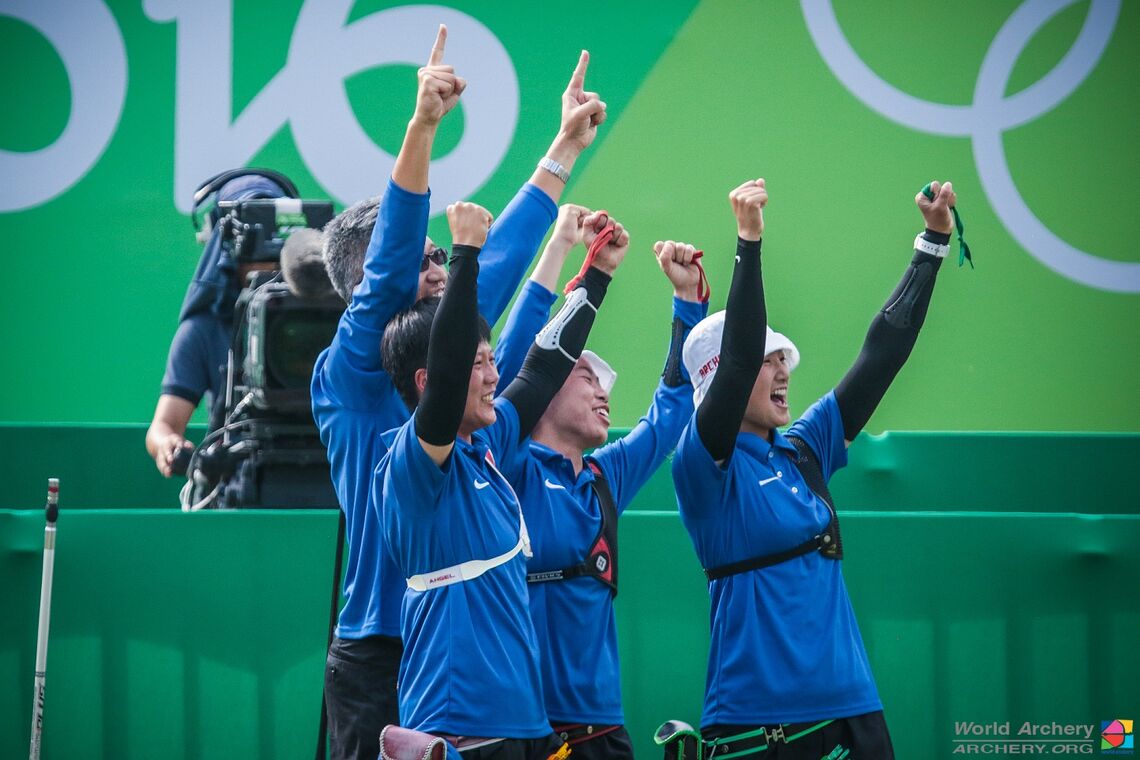
It was the same story at the first stage of the 2018 Hyundai Archery World Cup in Shanghai, Korea beating Chinese Taipei in the final – even though the latter built a quick, 4-0, lead in the match.
Coach Ni Ta-Chih was relaxed about the result.
“I was happy about the team match, because our women’s team is now really strong. Each time, we should be facing Korea for the gold medal, and we were,” he said.
In Antalya, the Taipei women lost to Germany in the semifinals, eventually taking third place, but an on-point Lei Chien-Ying had little trouble pushing aside Korea’s Lee Eun Gyeong for individual bronze on the beach.
Like all the Asian teams, 2018 is all about the ‘second Olympics’; the Asian Games in Jakarta starting in August.

“We are still adjusting things. We can still improve and do something special at the Asian Games,” said coach Ni.
“The athletes now have a lot of international experience. They know how to adjust between stages. With more focus and physical training, they can do even better.”
“We’re working on mind training, and making absolutely sure the team rounds are smooth.”
It’s an oft-heard maxim on the international tournament field that teams are only as strong as their third archer – and it’s the level of that last member that either sinks the squad or carries it to the podium.
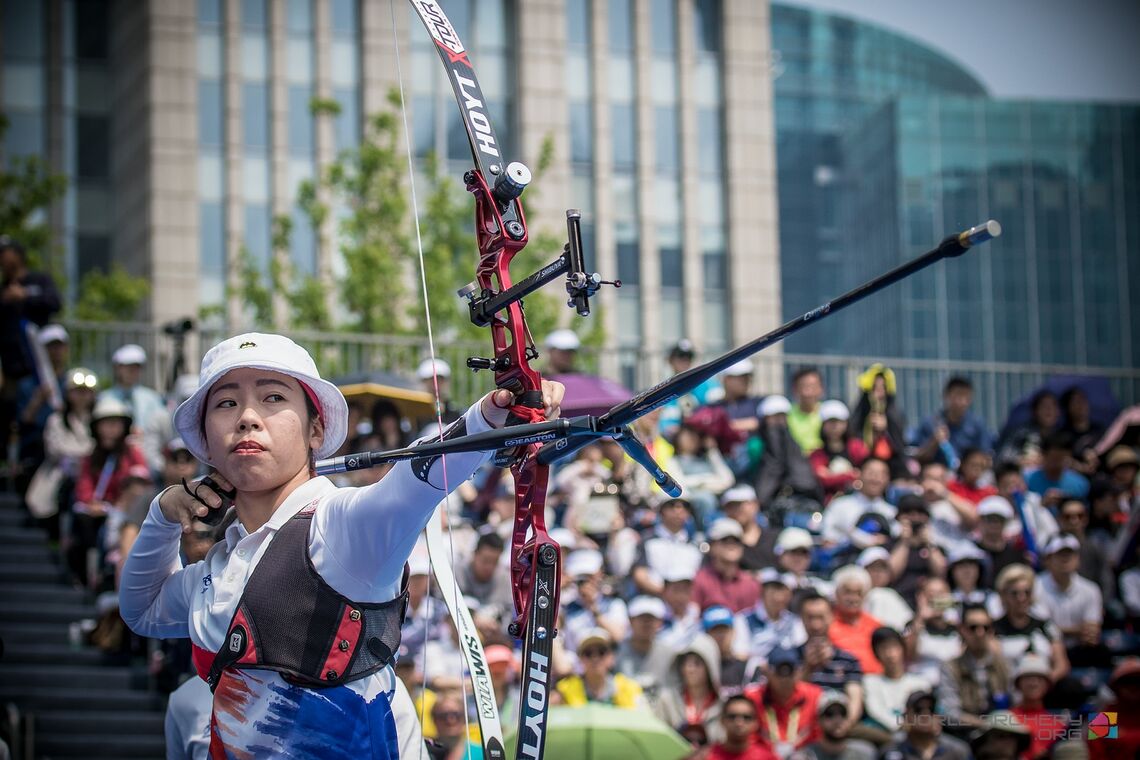
Korea’s recurve strength comes from its deep pool of world-class athletes.
“Before there was a big gap between the top four [in Chinese Taipei] and the next athletes on the list. Now our fifth through to eighth archers are up to the same quality, they just need more international experience to be competitive,” said coach Ni.
Many of the elite athletes in Chinese Taipei are permanent students, but an increase in funding has allowed the world-class programmes to expand.
There’s even an eye on making the teams fully professional.
“We’re working on putting together some company teams, like in Korea,” said coach Ni.
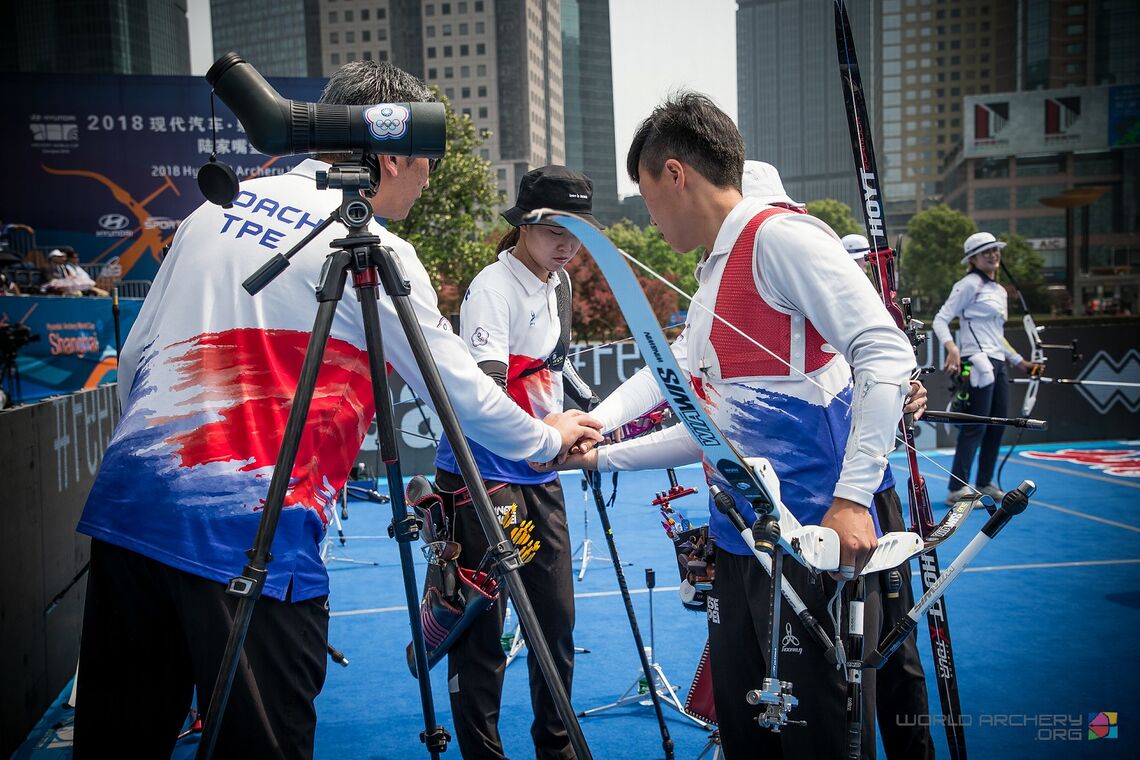
“We are trying to find some sponsors outside the country, because there is, of course, a limited budget for archery. But some of our best up and coming athletes are in high school.”
Chinese Taipei’s archery team has a history of leaning on Korean learnings.
The current coaching squad are almost all native, but respected Korean coaches like Kim Hyung Tak and Oh Kyo Moon have lent their expertise over the years. With more Korean-esque developments coming down the line, the question is whether Chinese Taipei and coach Ni’s squad already have the level to dethrone the top team in Asia.
“Of course, the target in Jakarta is a gold medal. I’d be happy with a silver. But we expect gold.”
The archery competition at the next Asian Games in Jakarta-Palembang is scheduled to take place on 19-26 August 2018.



